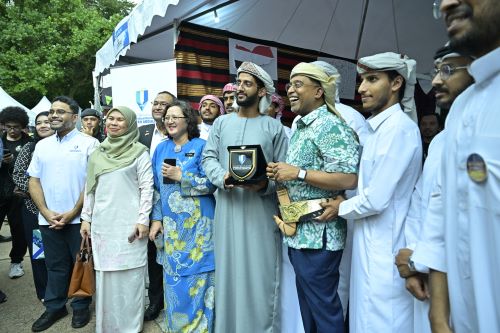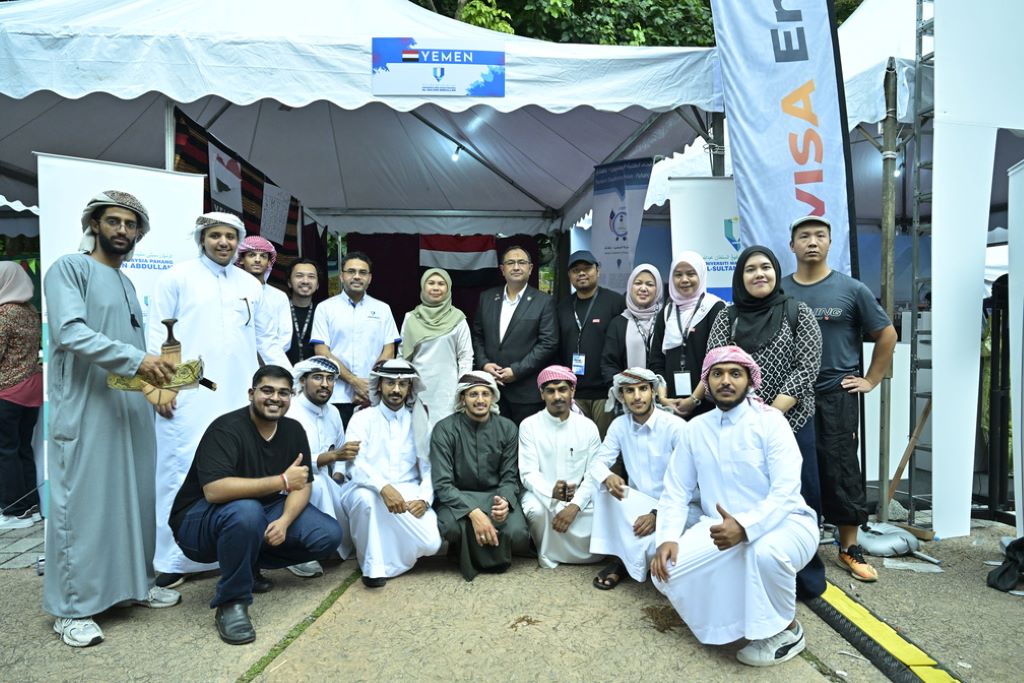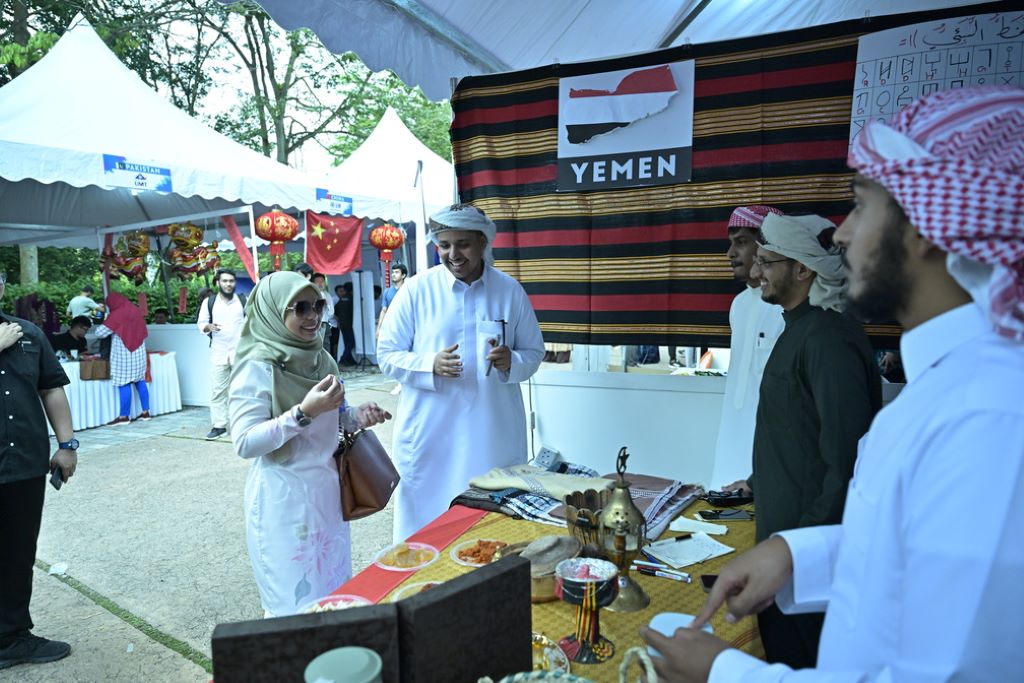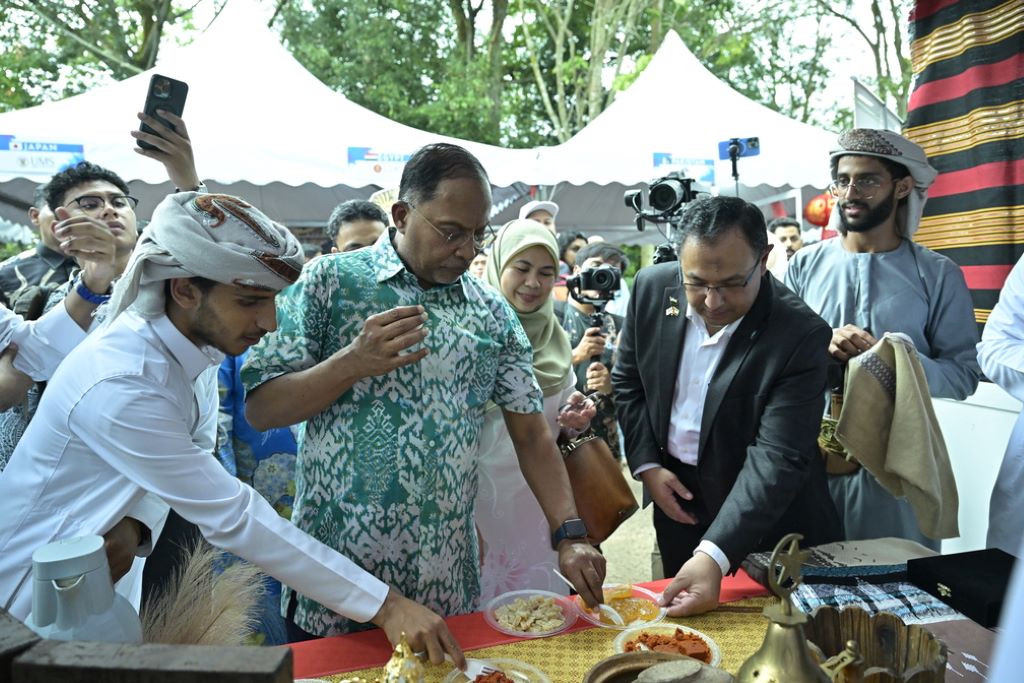UMPSA joins MAGNET 2024 Programme: A Platform for International Student Unity
PUTRAJAYA, 27 November 2024 – The Meet and Greet with International Students in Malaysia (MAGNET) 2024 programme was successfully held at Taman Botani Putrajaya, bringing together 658 international students from various countries.
Organised by the Ministry of Higher Education (MOHE) in collaboration with Education Malaysia Global Services (EMGS) and Universiti Pertahanan Nasional Malaysia (UPNM), the programme set a new record for ‘Most International Student Participants in an Explorace Competition.’
The Minister of Higher Education, Yang Berhormat Dato’ Seri Diraja Dr Zambry Abd Kadir, attended the event and visited the exhibition booth of Universiti Malaysia Pahang Al-Sultan Abdullah (UMPSA).
According to him, programmes like MAGNET demonstrate that Malaysia is not only a preferred destination for education but also for its rich cultural experiences.
“The diversity showcased today forms the foundation for strengthening closer international relations,” he said.
He was accompanied by the Acting Vice-Chancellor of UMPSA, Professor Ts. Dr Aida Mustapha.
Professor Ts. Dr Aida also introduced various university initiatives aimed at strengthening relationships among international students.
She said UMPSA is committed to becoming a key platform for fostering unity and cultural exchange among international students.
“MAGNET 2024 not only reflects the richness of cultural diversity in Malaysia but also creates opportunities for closer youth collaboration,” she said.
Meanwhile, the Deputy Vice-Chancellor (Academic and International Affairs), Professor Dato’ Ir. Ts. Dr Ahmad Ziad Sulaiman, said that active participation in such events not only allows students to introduce their unique cultures to the local community but also strengthens the integration between international students and our community.
With UMPSA’s involvement alongside other institutions, MAGNET 2024 successfully made a profound impact in solidifying Malaysia’s position as a hub for education and global cultural exchange.
The MAGNET 2024 programme featured exhibition booths from all public universities (UA) and several private higher education institutions (IPTS).
Each booth showcased the cultural identities of international students from various countries in an effort to strengthen the spirit of unity and cultural exchange.
UMPSA’s booth stood out by highlighting the cultural diversity of Yemen through the active participation of its international students.

The unique features presented included demonstrations of traditional clothing such as the imamah, and serving traditional Yemeni desserts like basboosah, makhloot, hareesah, and mulabaniah, along with Yemeni traditional coffee, which successfully captured the attention of Dato’ Seri Diraja Dr Zambry.
He had the opportunity to enjoy the delicacies and praised UMPSA’s efforts in introducing this unique culture to the international community.
Meanwhile, the Explorace competition was the highlight of the programme, involving a 15-kilometre journey that took approximately three hours to complete.
UMPSA sent three teams of international students from countries such as Bangladesh, Pakistan, Jordan, Indonesia, India, Sudan, Egypt, and China.
The activity tested participants’ physical endurance, creativity, and teamwork while showcasing an extraordinary spirit of unity.
According to one of the Explorace participants, Arif Hossen from Bangladesh, the experience was incredibly valuable to him.
“This Explorace gave me the opportunity to collaborate with friends from various countries.
“We learned to appreciate differences and built new friendships.
“Malaysia is truly a unique place with a culture that unites various races,” he said enthusiastically.
Additionally, various traditional Malaysian games such as congkak, batu seremban, and others were provided to introduce the local cultural heritage to international students, fostering an appreciation for Malaysia’s arts and traditions.
By: Muhammad Zufli Zuhari, Centre for International Relations (CIR)
Translation by: Dr. Rozaimi Abu Samah, Faculty of Chemical and Process Engineering Technology
- 59 views












